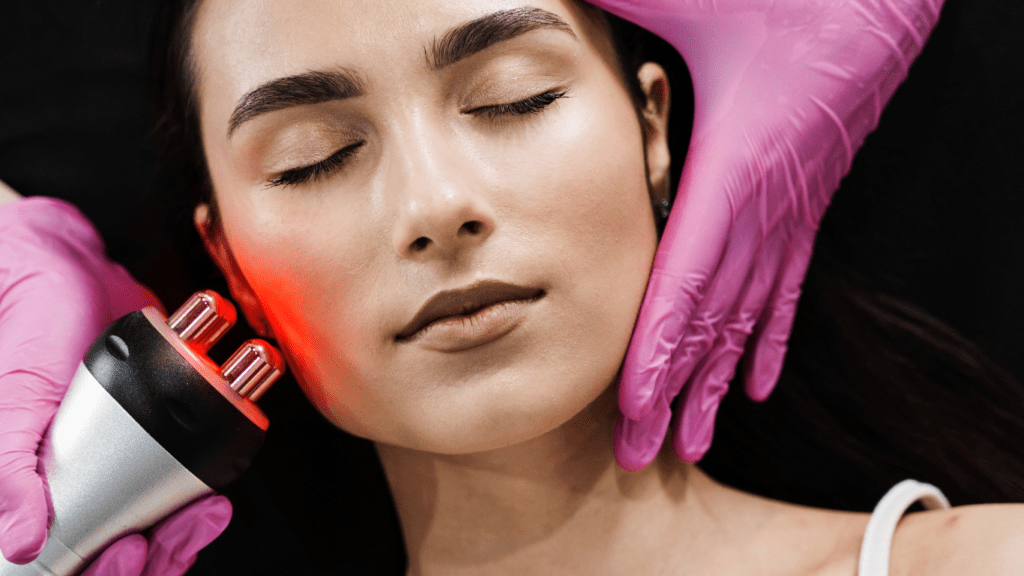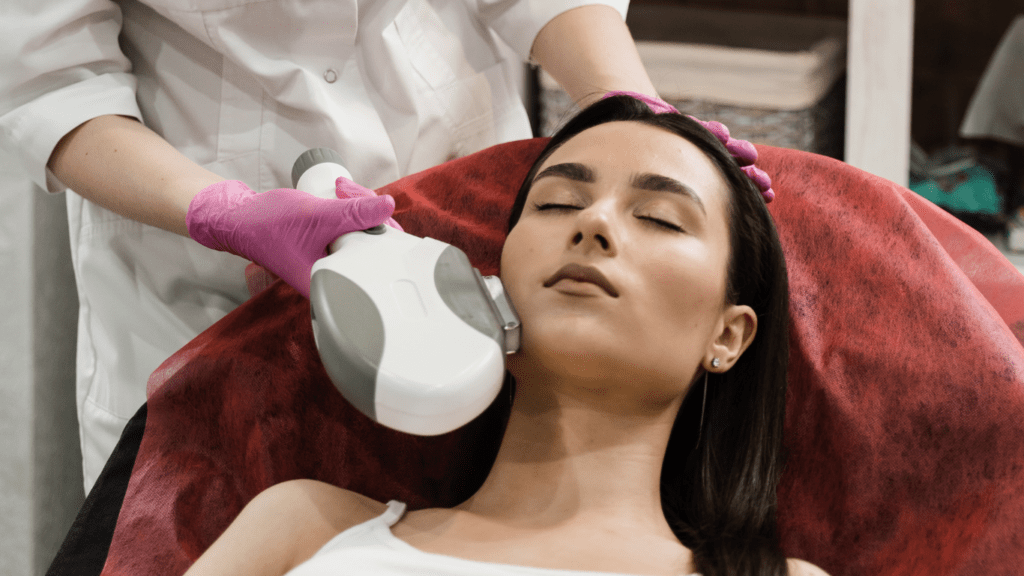The Rise of Beauty Tech
Artificial intelligence is transforming the beauty sector, especially in skincare. High-tech devices and apps analyze skin conditions, enabling precise treatments. Major brands are investing in AI to enhance user experience. Neutrogena’s Skin360 app, for example, scans the skin to provide personalized skincare routines.
AI-powered skincare solutions offer real-time skin assessments. Virtual dermatologists analyze skin over time, giving accurate insights into skin health. Companies like L’Oréal use AI to develop products that meet specific skin needs, revolutionizing how we approach skincare.
Voice-controlled beauty assistants simplify skincare routines. These smart devices recommend products based on daily activities and environmental factors. They seamlessly integrate into daily lives, elevating skincare to a new level of personalization.
AI tools track skin changes and recommend timely interventions. They detect issues like dryness or wrinkles early, enabling preventive care. Consumers benefit from continuous monitoring and tailored advice.
Innovations in beauty tech make high-quality skincare accessible. Advanced algorithms offer solutions that were once available only in dermatology clinics. AI-driven apps bring professional skincare advice right to the user’s smartphone.
AI in Personalized Skincare
AI is significantly enhancing personalized skincare. By leveraging data, these technologies create routines and products tailored to individual needs.
Customized Skincare Routines
AI tailors skincare routines using data from various sources like apps and devices. Algorithms analyze skin type, environmental factors, and lifestyle habits to suggest products. For example, L’Oréal’s Custom D.O.S.E. system designs serums based on specific skin concerns. Additionally, Neutrogena’s Skin360 app provides personalized routines after evaluating a user’s skin condition through a smartphone.
Skin Analysis Tools
AI-driven skin analysis tools give precise insights into skin health. These tools use machine learning and image recognition to detect issues like acne and wrinkles. For instance, HiMirror analyzes users’ skin by taking photos and providing detailed reports. Dermatologists then use this data to offer targeted treatments. Other examples include the Foreo Luna Fofo, which measures skin moisture levels to recommend conditioning products.
Major Advancements in Beauty Tech

AI has driven significant changes in the beauty industry. Technological innovations enhance customization, functionality, and efficiency in skincare, transforming user experiences.
Product Recommendations
AI algorithms analyze vast datasets to offer precise product recommendations. They assess individual skin types, environmental conditions, and historical purchase data. For instance, Olay’s Skin Advisor harnesses AI to recommend tailored products by evaluating selfies against a vast database. This level of personalization ensures that users receive products suited to their unique skincare needs, improving efficacy and satisfaction.
Virtual Try-ons
Virtual try-ons leverage augmented reality (AR) powered by AI. They allow users to test products like makeup and skincare items digitally before purchase. Sephora’s Virtual Artist app exemplifies this by enabling users to try different looks using their smartphone cameras. This tech enhances shopping experiences, reducing the guesswork involved in selecting the right products and minimizing returns.
Benefits of AI in Skincare
AI technologies offer various advantages in skincare by enhancing accuracy, efficiency, and personalization.
Precision and Accuracy
- AI enhances skin analysis precision by assessing individual skin conditions accurately.
- AI tools like HiMirror and Foreo Luna Fofo scan the skin, detecting issues such as dryness and sensitivity with exactness.
- These devices use image recognition and machine learning algorithms to provide tailored skincare routines, improving results significantly.
- Major brands employ these technologies to create more effective products.
- AI accurately interprets large datasets, ensuring that skincare solutions match specific skin types and conditions.
Time and Cost Efficiency
AI reduces time and cost in skincare routines by automating processes and minimizing trial and error. Tools like Olay’s Skin Advisor provide instant recommendations, saving time compared to traditional dermatologist visits. Virtual try-ons, such as Sephora’s Virtual Artist app, allow users to test products digitally, reducing the need to purchase multiple products. This technology helps users find their perfect match swiftly and economically, making high-quality skincare more accessible.
Challenges and Limitations
AI advancements in skincare bring numerous benefits, but several challenges and limitations exist.
Privacy Concerns
Data privacy represents a significant concern in AI-driven skincare solutions. Companies collect large amounts of user data, including personal details and skin analysis results. Without robust data protection measures, this information can be vulnerable to breaches. Users might hesitate to share sensitive data due to potential misuse or unauthorized access. Consequently, organizations must implement stringent data security protocols to safeguard user information.
Accessibility
Despite the promise of AI in skincare, accessibility remains a major issue. High costs associated with AI-enabled devices and solutions can hinder widespread adoption. Affordability affects many consumers who cannot access high-tech skincare tools. Additionally, technology requires a certain level of digital literacy, excluding segments unfamiliar with advanced tech. To ensure inclusivity, companies must work on cost-effective solutions and user-friendly interfaces.
The Future of AI in Skincare
AI’s future in skincare holds tremendous promise for personalization. As AI algorithms evolve, they’ll offer even more precise skin assessments, considering factors like:
- age
- environmental conditions
- lifestyle
For instance, AI could predict potential skin issues before they manifest, allowing users to take preventive measures.
AI-powered skincare will integrate seamlessly with other tech trends. Wearable devices, such as smartwatches, could monitor skin conditions in real time. If humidity increases, these devices could recommend moisturizer or hydration. This continuous feedback loop will enhance skincare routines, making them more responsive and adaptive.
Retail experiences will also transform. Virtual try-ons will become hyper-realistic, helping users visualize products on their skin more accurately. AI could analyze customer reviews and feedback to refine product recommendations, increasing satisfaction and reducing returns.
AI in skincare will democratize access to expert advice. An AI-driven app could offer guidance comparable to a dermatologist’s consultation, making expert skincare more accessible. Innovations might include virtual skincare consultants available 24/7, providing instant support and tips.
However, the integration of AI will depend on addressing key challenges and limitations. Ensuring data security and privacy remains paramount. Companies must employ robust encryption and transparent data handling practices to build trust. AI systems should be user-friendly to ensure wider adoption. Simplifying interfaces will help users of all tech proficiency levels benefit from AI advancements.



 Founder & Editor-in-Chief
As the visionary behind Glam World Walk, Anthonyo Corbinollo brings his passion for fashion, beauty, and luxury to life through captivating content that resonates with glamour enthusiasts worldwide. With over a decade of experience in the fashion industry, Anthonyo curates a platform that celebrates the finest trends, exclusive brands, and lavish travel destinations. His dedication to highlighting the elegance in everyday life has made Glam World Walk a go-to source for fashionistas and style icons alike.
Founder & Editor-in-Chief
As the visionary behind Glam World Walk, Anthonyo Corbinollo brings his passion for fashion, beauty, and luxury to life through captivating content that resonates with glamour enthusiasts worldwide. With over a decade of experience in the fashion industry, Anthonyo curates a platform that celebrates the finest trends, exclusive brands, and lavish travel destinations. His dedication to highlighting the elegance in everyday life has made Glam World Walk a go-to source for fashionistas and style icons alike.
